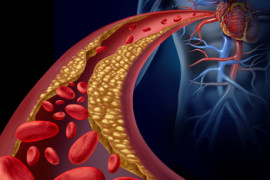Research is yet again showing that oral care is good for the heart. In a study published in the journal Hypertension, non-surgical periodontal therapy appears to have a significant impact on carotid intima-media thickness.
In the study, 273 adults with periodontitis were divided into two groups—one group received full-mouth periodontal scaling and the other received no treatment. Researchers compared carotid intima-media thickness before treatment and a year after treatment. The group that received periodontal therapy showed a significant decrease in carotid intima-media thickness; whereas, the control group showed no change.
In a report by Science Daily, the study’s co-author Dr. Michael Skilton commented on the significance of these findings:
“The effect is comparable to a 30 per cent fall in low-density lipoprotein cholesterol — commonly referred to as ‘bad’ cholesterol — which is associated with a decreased risk of heart disease. It’s also equivalent to the effects of reversing four years of aging, 8 kg/m2 lower body mass index, or 25 mm Hg lower systolic blood pressure.”
This research is important because thickening of the carotid artery is almost 100% associated with thickening of the arteries around the heart. Carotid intima‐media thickness, or the thickness of the inner layers of the arterial wall, is often used to assess cardiovascular disease risk because its location (the neck) is easily accessible with a simple ultrasound.
Recent research has shown periodontal therapy—specifically, a microbial approach—can be beneficial in slowing the progression of blockage in the carotid artery, and the benefits for heart health appear to be just as significant as managing traditional cardiovascular risk markers like cholesterol and BMI. Most deadly chronic diseases are caused by modifiable risk factors, and oral health may be the easiest (yet most often overlooked) factor.
Source: Effect of Periodontal Therapy on Arterial Structure and Function Among Aboriginal Australians



